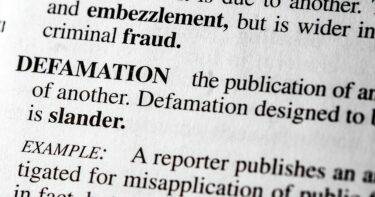
17
Feb 2025
Iya Patarkatsishvili & Vevhen Hunyak -v- William Woodward-Fisher
Buyers and Sellers Beware: The ‘Hole’ Truth?
When people are selling a property, they are required to answer questions within the Sellers Property Information Form, including any defects the property as. This case highlights the importance of answering the questions honestly and accurately.
On the 10 February 2025, Mr Justice Fancourt handed down judgement in the case of Iya Patarkatsishvili & Vevhen Hunyak -v- William Woodward-Fisher.
The case of Iya Patarkatsishvili & Vevhen Hunyak -v- William Woodward-Fisher
The case concerned Iya Patarkatsishvili and her partner Vevhen Hunyak who had purchased a £32.5m mansion in Ladbroke Grove, West London. The home had previously been owned by Mr Woodward Fisher and his wife who had completed extensive renovation work on the home before deciding to sell the property.
In early 2018, Mrs Woodward-Fisher had noticed moths in the home that were causing damage to clothing and so sought the assistance of pest control companies to eradicate the moths. The pest control companies quoted prices of approximately £10,000 for their services, which highlights the scale of the issue within the property.
When it came to responding to the pre-contract enquiries, Mr Woodward Fisher confirmed that he was “not aware” of any such matters affecting the property in relation to any defects, decay and infestation. The replies to the pre-contract enquiries were sent to the buyer’s solicitors, who confirmed that following reviewing the documents received, there was no reason as to why they should not proceed with purchasing the property.
Within days of moving in, Dr Hunyak and Ms Patarkatsishvili noticed moths in the property and hired pest controllers to carry out spray treatment within the home. A report in relation to the moth infestation described an “extremely severe situation” that had “been a problem over years rather than months”. The buyers alleged fraudulent misrepresentation by Mr Woodward Fisher and claimed damages including £3,715,728 in stamp duty, £383,828.89 for the costs of work to the property, £2,350 for damage to clothes, and £891,000 for loss of enjoyment of the house for a period of six months and one week, while the works were being done.
The ruling
The High Court ultimately ruled that the couple should receive repayment for a proportion of the £32.5m they paid for the property, less the amount for the years they did manage to occupy in the home. Justice Fancourt further ruled that the couple should receive substantial damages that included the stamp duty land tax paid when they purchased the property, the costs they incurred attempting to deal with the moth infestation and £15,000 for clothes ruined by the moths.
Justice Fancourt found that Mr Woodward Fisher was not trying to consciously deceive the couple but instead was desperate to sell the property and move on. He was concerned that any disclosure of the infestation would have caused the sale of the home to fall through.
Justice Fancourt made it clear that for a potential claimant to succeed in an action in fraudulent misrepresentation/deceit, they must show that:
- They have acted in reliance of the defendant’s misrepresentation. If the claimant would have done the same in absence of the misrepresentation, their claim will fail. Proving knowledge of the misrepresentation is therefore essential.
- There has been inducement by acting with that knowledge.
- Finally, the court must consider whether there was in fact no inducement because the claimant would have acted the same way regardless.
A warning to buyers and sellers
This case is a stark warning to sellers who attempt to misrepresent known issues with properties to potential buyers. Sellers need to be aware that transparency is key in property transactions and that it is important to always answer questions in relation to the property to the best of your knowledge and belief. Equally, buyers need to ensure they engage in full due diligence of the property to ensure issues such as the above do not occur – the Latin phrase caveat emptor (“buyer beware”) has never rang truer than in this case.
Get in touch
If you have any questions in reference to the above or any issues you are currently dealing with, do not hesitate to contact our Property Litigation team using the details provided below.
Katie Smith – KatieSmith@chadlaw.co.uk 0113 225 8825
Andrew Dickinson – AndrewDickinson@chadlaw.co.uk 0113 225 8830
- Like this ? Share with friends





